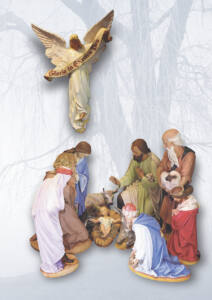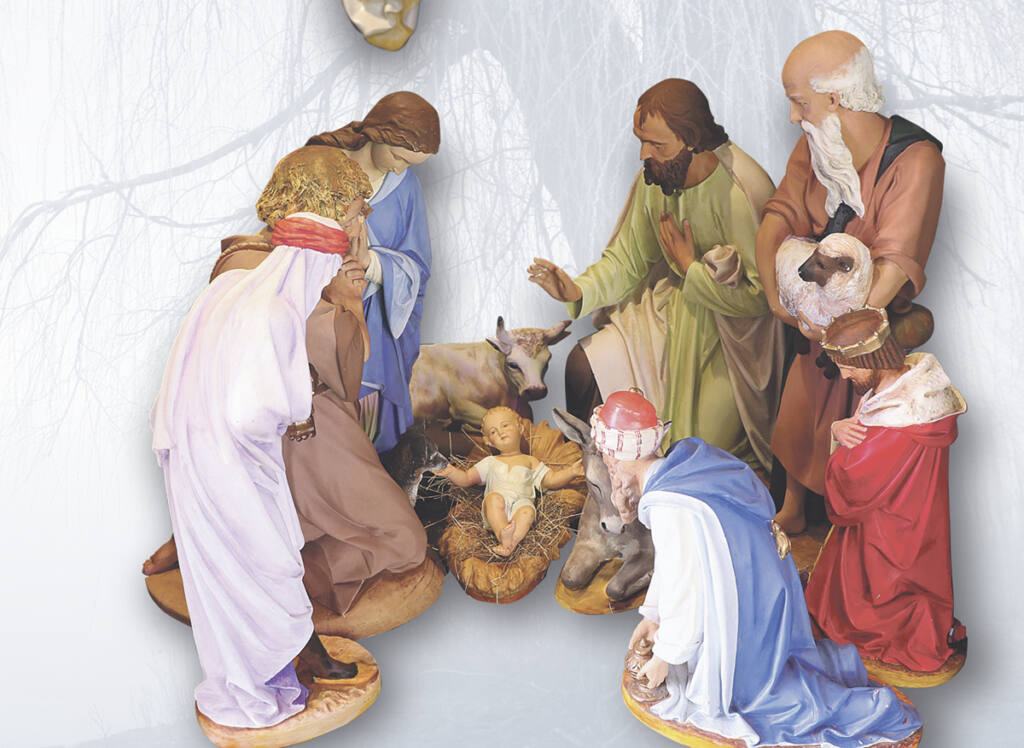
WelCom December 2022
James B Lyons
Diocesan Priest, Wellington
In every Nativity tableau, the figure of Joseph stands out as a proud guardian and protector of mother and child.
The Christmas story casts him in a privileged role, a character with integrity, trustworthy and reliable. But without a word to say.
Joseph’s strength is in his silence.
Introduced in the Gospel of Matthew as betrothed, or engaged, to Mary, he is immediately faced with her unexplained pregnancy. We read: Joseph, being a man of honour and wanting to prevent any public disgrace for Mary decided to quietly break the engagement…[cf Matthew 1:18-24].
He obviously struggled with his decision but, reassured through a dream, changed his mind and took Mary home to be his wife.
Throughout this extremely emotional process no words of Joseph are recorded. It’s as though he has nothing to say.
Again, when news comes that Herod has ordered the child to be hunted down and killed, Joseph escapes with his family to Egypt. There they stay till they learn that Herod has died. [cf Matthew, 2]
Such an ordeal, fleeing for their lives, becoming refugees in a strange land, not knowing how long they will have to stay, conjures up all sorts of fears and threats. Yet we hear not a word from Joseph.
This silence should not disturb us. Joseph’s integral role in the gospel narrative shines through his actions. The few sentences describing what he does are more than enough to present Joseph as a person capable of great heroism, unafraid of challenge, loyal and true.
“Silence speaks its own language of calm, peace and presence. It does not demand attention but, instead, attends to situations through quiet reflection and positive listening.”
His caring nature gave Mary confidence and supported the child, Jesus, as he grew. His values helped form the independence, sensitivity and respect that Jesus would need in his ministry.
Silence speaks its own language of calm, peace and presence. It does not demand attention but, instead, attends to situations through quiet reflection and positive listening.
Joseph would not have ‘heard’ his dreams had he not been able to put aside the distraction of sound.
Of course, Joseph would have spoken. The decision to escape Herod or to join the census in Bethlehem would have been made in conversation with Mary. The enquiries for accommodation in the crowded Bethlehem town would not have been without words.
Later, their anguish and disappointment in losing the young Jesus on their visit to Jerusalem, would certainly not have been met with silence!
There is much we can learn from Joseph. Especially today, when our society seems intent on avoiding silence; when so much that is spoken is superficial and thoughtless!
Music is a necessary constant in many homes and in most shops. Students find study difficult without music for company. Headphones are essential accessories to and from work. It would seem that filling life with sound makes life liveable!
The old adage, Think before you speak, is a timeless indicator of the importance of silence as an indispensable component in meaningful conversation.
The Irish poet, John O’Donohue, gives us a beautiful and powerful image: Silence is the womb of the word!
The best words, words that convey love and care and speak from the heart, arise from inner quietness, gently gestating before becoming, for the one to whom they are addressed, life-giving.
If our words are to be truly life-giving, we must give place to silence from which they are born.
Although we hear words from Mary she, like Joseph, welcomed the quiet and pondered deeply her experiences and the things that were said about her son, Jesus.
But it is Joseph whose silence is most noticeable in the lead-up to Christmas.
As you approach Bethlehem this month, and stand before the ‘Christmas Crib’, ponder the scene with fresh eyes. Stand in the quiet of Joseph and ‘see’ the silence that announces the mystery. Feel its strength.
